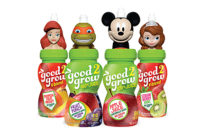Beverage brands accept Bitcoins as currency
New payment option helps wineries, craft brewers reach new consumers

In our increasingly digital world, it makes sense that people have developed digital forms of currency to coincide with Internet and mobile shopping. Bitcoin was the first cryptocurrency to arrive on the financial scene in 2009 and has since increased in popularity. As I’m writing this, 1 Bitcoin is trading for more than $600 in the United States, and Bitcoin’s average transaction volume exceeds that of Western Union, according to Coinometrics.
Users can either mine Bitcoins by contributing computer power to solving complex math problems or by buying and selling them on one of many Bitcoin exchanges. Then users can trade their Bitcoins or fractions of Bitcoins like stocks or redeem them for products and services at the growing number of retailers that accept Bitcoins. The exchange of Bitcoins happens digitally, anonymously and directly from one computer or mobile device to another. According to CNN Money, this transaction model can be enticing to small businesses because the transaction fees are less than those associated with credit card payments. However, Bitcoins still should be viewed and taxed as property, the Internal Revenue Service announced in a New York Times article in March. This means that a taxpaying company that receives Bitcoins as payment should report the amount of Bitcoins it receives at the fair market value on the date of payment in its gross income, it reports.
To keep up with these digital times, beverage companies are starting to accept Bitcoins as payment for their drinks. A year ago, Picnic Wine Co. in Napa, Calif., reported that it was the first winery in the United States to accept Bitcoins. In January, Philadelphia Brewing Co. in Philadelphia announced that it also will accept the crytpocurrency. Since then, the brewery has made almost 40 Bitcoin sales, according to Co-owner Nancy Barton.
To make the exchange, Philadelphia Brewing rings up a Bitcoin sale like a regular sale in its point-of-sale system but then connects to its online Bitpay account and enters the transaction amount there as well, Barton explains. The system then creates a quick-response code that the consumer can scan with a smartphone to transfer the fraction of a Bitcoin that equates to the sale total to Philadelphia Brewing’s Bitpay account, she says. The Bitcoin amount then is converted into U.S. dollars and transferred into Philadelphia Brewing’s bank account within a day or so, she explains.
Mondo Cellars in Paso Robles, Calif., took Bitcoins a step further and invited investors to exchange Bitcoins for equity partnership in its winery in December. The company also released in March the first wines fully funded by Bitcoins. The wine, cork, label, foil, glass, processing and bottling vendors for its new2011 Mistress and 2011 La Rocca red wine blends all were paid with Bitcoins, according to the company. The winery also accepts Bitcoins for consumer purchases and thinks that, in a way, it helps bring in new business.
“We had a guy come in here yesterday, and he bought $80 worth of wine,” says Doug Mondo, one of the winery’s owners. “I think the people that hold Bitcoins are enamored by being able to use them at different places, so he may not have spent $80 with us had we not accepted Bitcoins.”
Looking for a reprint of this article?
From high-res PDFs to custom plaques, order your copy today!






